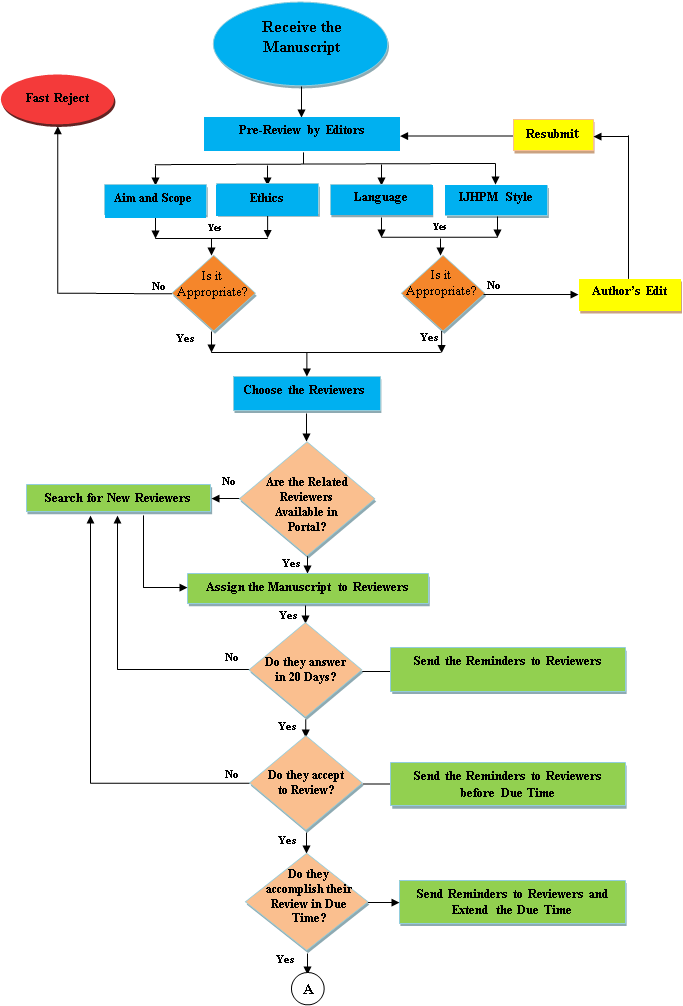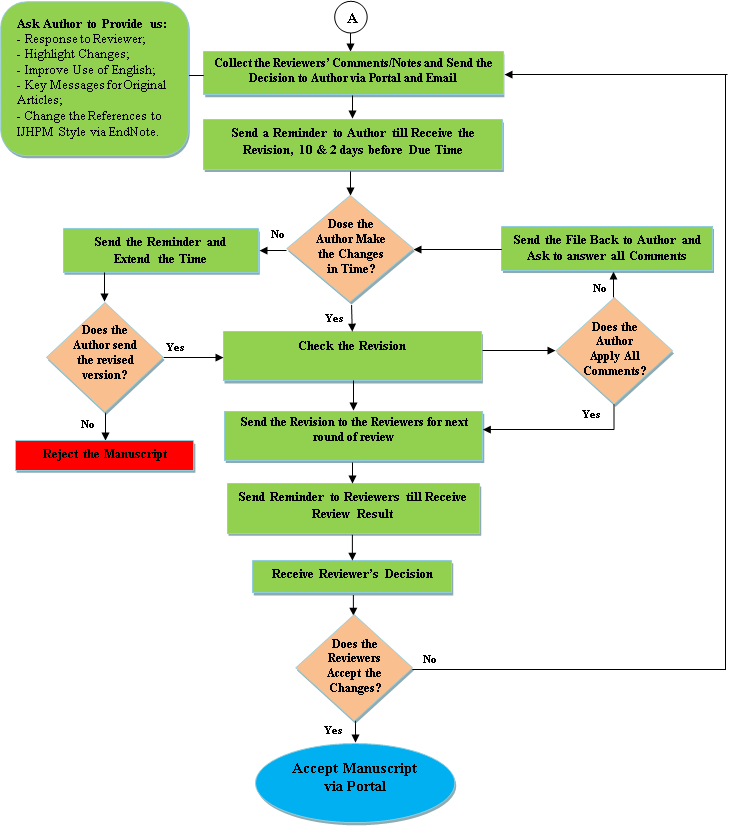Peer Review Process
JUPA Editorial Policies for Authors
Editorial Review and Publication
JUPA’s authors will be sent notifications of the manuscript’s receipt and editorial decisions by email. During the peer-reviewing process, authors can check the status of their manuscript via the Online Manuscript Submission System.
All submissions to the JUPA go through a double-blind peer-review process to ensure content quality. At the first stage, a technical editor checks format and style of manuscript to assure its compatibility with the JUPA’s guide for authors. If authors have not considered the guides, the manuscript will be sent back to authors for compatibility. The manuscript will be then assigned to section editors, based on the subject area and editor-in-chief decision, for a fast pre-review screening within 5 days. Section editors check the manuscript for content quality (with a focus on methodology, originality, and contribution to knowledge and practice) and use of English. The decision at this stage is fast reject, revise and re-submit, or assign to external reviewers for detailed evaluation process. Selection of external reviewers is based on their scientific background and experience, previous works, authors’ suggestion, and expertise. Every attempt is made at the JUPA to obtain at least 2-3 strong reviews on each manuscript. Editor-in-Chief receives the reviewers’ comments and sends them along with decision letter to corresponding author.
JUPA adheres to a double-blind peer-review process that is rapid, fair, and ensures the high quality of published articles. JUPA’s reviewers are required to declare their conflict of interests and maintain the confidentiality about the manuscripts they review.
As JUPA is a rapid response journal, the review process takes between 1 to 2 months.
JUPA decision letter determines the status of manuscript in five ways:
1. Acceptance: the manuscript could be published electronically. This process lasts between one to two weeks. Before electronic publication, corresponding author should verify a proof copy of the paper. JUPA supports the Advance Access initiative by which papers that have been copyedited and typeset but not yet paginated for inclusion in an issue of the journal are appeared online upon finishing with the review process. Advance accessed papers will be in a queue to be published in one of JUPA’s upcoming issues.
2. Minor Revision: authors will receive comments on their manuscript and will be asked to submit a revised copy (showing all changes they have made to the manuscript using Track and Change or highlighted colour) beside a response to reviewer file in which they need to respond to each and every comment of reviewer one by one (for each reviewer separately). Revisions should be submitted in 5 weeks after decision letter.
3. Major Revision: it means a chance to reorganize the manuscript to meet the required scientific criteria for another review process. Here also authors are asked to submit a revised copy (showing all changes they have made to the manuscript using Track and Change or highlighted colour) beside a response to reviewer file in which they need to respond to each and every comment of reviewer one by one (for each reviewer separately). Revisions should be submitted in 5 weeks after decision letter. Revisions should be submitted in 5 weeks after decision letter. Otherwise, authors need to go through a resubmission process.
4. Rejection: in most cases, methodological and scientific concerns are the main origins of rejection. Causes of rejection will be sent to the authors to provide more chance for them for publication in other journals.
Editing
Accepted manuscripts will be edited according to the JUPA’s Guide for Authors (this does not include language editing) and returned to the corresponding author for final approval. All contributing authors are responsible for all statements made in their manuscript during editing and production that are authorized by the corresponding author.
Corrections
Requests for publishing corrections should be sent to the editorial office. Corrections will be reviewed by editors and are published immediately and linked online to the original paper.


